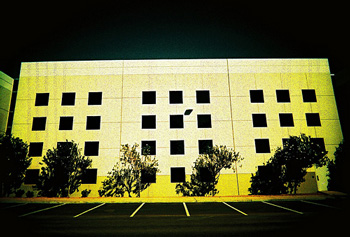
Decreased Demand
Commercial real estate has not been doing much business during the economic downturn. When businesses are closing and joblessness is rampant throughout the country, the demand for commercial space decreases except in a few big cities that weather the economic storm. Start-up businesses (except in specific categories) are few and far between during poor economic times.
Scarcity of Start-Up
Home businesses tend to be on the rise in dismal economic climates. Often unemployed workers try their hand at starting their own venture. Yet home businesses do not require extra commercial space. As well, more lenders set up during economic turmoil to take advantage of the financially-strapped individual's need for cash. Yet this type of lender may run a temporary operation.
Dealing with the Aftermath
Commercial real estate does not thrive in a recession. In fact, commercial space is not in big demand during the aftermath of economic upheaval. Things are still tight, joblessness remains an issue, and people are wary of their financial future.
Attracting New Tenants
Yet commercial real estate is still in business because the sector has no place to go only 'up' in terms of performance and profit. During difficult times, business brings out all the stops to attract new customers. Landlords are now lowering rents and making more concessions to tenants.
"...This is very much a tenant's market, which is quite favorable for businesses that are considering expansion...," says NAR chief economist, Lawrence Yun.
New Development
Development is expected to bounce back in this buyer's market. In a survey conducted by the Society of Industrial and Office Realtors, 57% of the participating 600 market experts predicted improvements in the office and industrial sectors in the coming months.
Office Space
Vacancy rates in office space are starting to level off and should improve dramatically by the end of 2011. Certain cities including New York City, Long Island, N.Y., and Honolulu had low vacancy rates in the office sector during April-June 2010.
Business in the Big Apple
It is no surprise that New York City, a global centre, fared so well in the findings. Studies have shown that more corporate travelers are visiting this thriving metropolis. In fact, a recent report about the NYC hotel industry indicates that Manhattan hotels had more than 90% occupancy rate in May 2010. Business is booming in the Big Apple.
Rent Reduction
Of course, office space looks more appealing these days - especially with the offers of reduced rent. The cost of rent for office space is expected to fall 2.7% throughout 2010 and an additional 2.1% in 2011. Based on 57 markets, the vacant 13.6 million square feet of office space in 2010 will be replaced by 22.6 million square feet of occupied office space during 2011. This positive projection focuses on existing office spaces as well as new spaces coming on the market.
Industrial Space
Industrial spaces are expected to follow a similar trend as office space. During the coming year, industry leaders predict a .4% drop in vacancy rates for industrial space. That trend will continue throughout 2011. Industrial rent will decrease by 5.4% in 2010 and experience another drop of 4.7% in 2011.
Is This The Right Time To Invest In Commercial Retail Space?